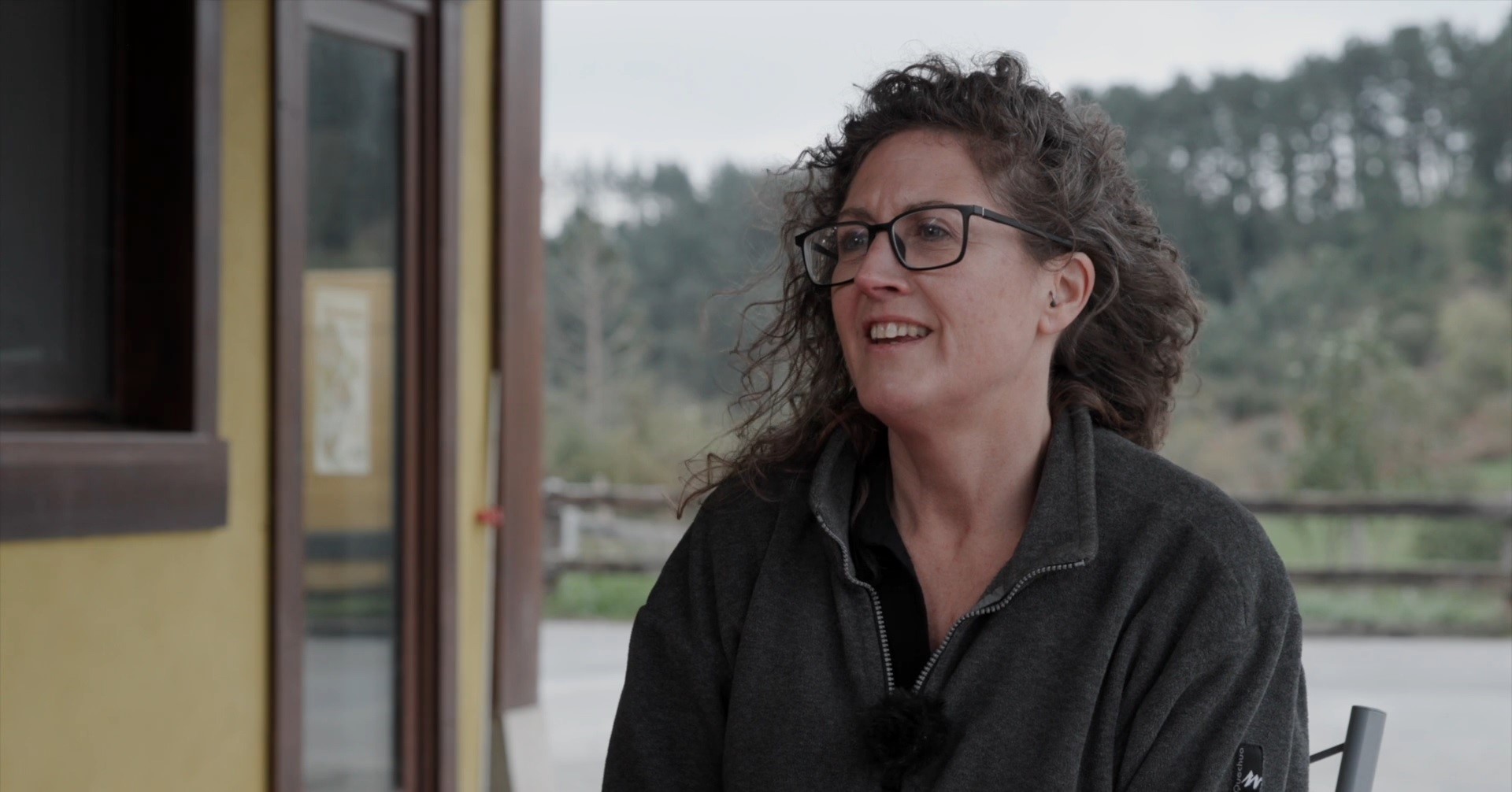
Leire Sorhouet, member of the Bizkaigane cooperative of organic and local agricultural products and councillor of Errigoiti Town Council – Errigoiti, Bizkaia
Leire, originally from Bilbao and trained in Biology, found her place in the rural world after a few years abroad and training in floristry. Her entry into Bizkaigane, an agricultural cooperative with more than 40 years of history, was almost accidental: “They called me to replace Amaia during her maternity leave for six months… and it’s been seven years now”. Since then, she has consolidated her position as one of the three women of the current nine members, actively participating in a project that, from the beginning, has been committed to cooperation and organic production.
Her adaptation to the farmhouse was not without its fears, especially because of the physical demands of agricultural work. “I felt a bit less, a bit small,” she recalls. However, over time, she asserted her place within the group thanks to her experience, her character and a more collaborative approach to work. According to Leire, cooperativism is built on “mutual help, synergies and care”, a philosophy which transcends gender and is also evident in the internal organisation of the cooperative, where women, she says, contribute with their knowledge at the “level of organisation and foresight” which enriches the group as a whole.
The transformative dimension of the project is also reflected in Leire’s critical view of public policies and dominant production models. She stresses that change must be integral, from institutions to individual habits: “The decisions taken will mark… what kind of society we are going to become”. Agroecology, for her, represents not only an agricultural model, but an ethic based on care: of the land, of animals, and of people.
Finally, Leire stresses the importance of teamwork as a key to reconciling work and personal life. “It’s not just a job, it becomes a way of life”, she says, recalling the harsh conditions of the traditional farmhouse that her grandmother lived in. In contrast, Bizkaigane is looking for another way of living in the countryside: cooperative, sustainable and humane.
For Leire, the main difficulty in incorporating women into the rural world lies in work-life balance and true equality, which must be accompanied by institutional recognition: “salaries, time, jobs, types of work”. Although at first she was afraid of the physical demands of agricultural work, she soon realised that the real obstacle was to “remove from the head the contamination received from society or the family”. She stresses that the transformation must not only be political, but also social and personal: “we have to work above all on a social level, but also on a personal level, from within”. For her, participating in an agroecological project is a source of pride, as it not only produces food, but also promotes health and autonomy: “it is not only about food sovereignty, but also about being masters of ourselves at all levels”.
